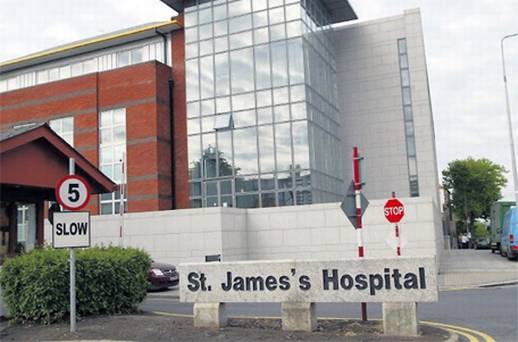The Trinity St James’s Cancer Institute has today become the first cancer centre in Ireland to be awarded accreditation and designation by the Organisation of European Cancer Institutes (OECI).
Trinity St James’s Cancer Institute’s OECI designation was approved in September 2019 and officially awarded today, representing a large step towards the centre’s goal of becoming Ireland’s first comprehensive cancer centre.
The OECI is considered the leading cancer accreditation agency in Europe and is among the best in the world, attracting a number of collaborators outside of Europe.
“There is hardly a family in Ireland that has not been touched by cancer”, said Provost Dr Patrick Prendergast in a press statement. “It gives me great pride that Trinity and St James’s have become the first institutions in Ireland to be awarded OECI accreditation.”
Trinity and St James’s Hospital first combined their cancer research and translational medicine efforts in 2016, a collaboration that has now grown into a fully-fledged cancer institute. The institute’s goal is to combine the research and clinical expertise of scientists and doctors from Trinity and St James’s to create new treatments and diagnostics to improve the cancer patient experience and reduce cancer mortality in Ireland.
“Our overall ambition for the Trinity St James’s Cancer Institute is to become a fully comprehensive cancer centre, with particular strengths and focus in cancer molecular diagnostics, genomics and translational immuno-oncology”, Prof Paul Browne, the director of Trinity St James’s Cancer Institute, said in the institute’s 2019 annual report.
These kinds of specialised, comprehensive cancer research institutes lead to improved patient outcomes. Fundraising for building a dedicated state of the art facility to formally house the institute is part of Trinity’s current capital campaign, “Inspiring Generations”.
“The Trinity St James’s Cancer Institute will transform cancer care in Ireland by combining ground-breaking cancer science with patient focused clinical care, all under one roof, on the grounds of St James’s Hospital,” Mary Day, CEO of St James’s Hospital, said in a press statement.
According to the Trinity St James’s Cancer Institute in 2016, nearly 44,000 new cases of cancer are diagnosed annually in Ireland, a figure projected to rise to over 55,000 annual cases by 2040. Cancer related work comprises some 20 to 30 per cent of the daily activity at St James’s Hospital. The new Trinity St James’s Cancer Institute aims to put forward some of the best research and resources Ireland has to offer to continue to understand and fight cancer.
In an information booklet for the institute, Prendergast and former CEO of St James’s Lorcan Birthistle stated that: “Our commitment is to harness all of the very considerable expert clinical and scientific resources we have available to us to benefit cancer patients and their families locally, nationally and internationally.”
“The world class knowledge in Trinity’s leading research institutes in nanoscience, biosciences and translational medicine when integrated with the clinical excellence and cancer expertise of Ireland’s largest hospital will greatly decrease cancer incidence and improve patient experience.”







